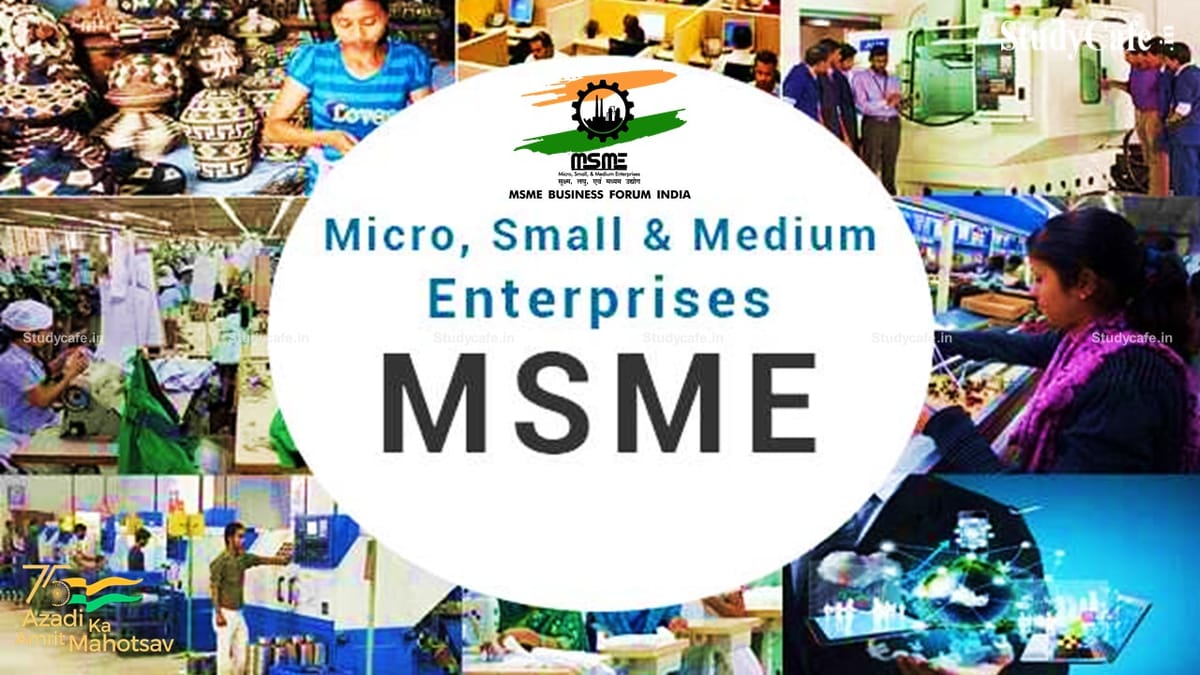Reetu | Dec 21, 2021 |

Steps taken by government to enhance credit flow to the MSME sector
The Reserve Bank of India (RBI) has allowed Scheduled Commercial Banks (SCBs) to deduct the amount equivalent to credit disbursed to New Micro Small and Medium Enterprises (MSMEs) who had not availed of any credit facilities from the banking system as of 01.01.2021, from their Net Demand and Time Liabilities (NDTL) for calculation of the Cash Reserve Ratio in circulars dated 05.02.2021 and 05.05.2021. (CRR). Dr Bhagwat Kisanrao Karad, Union Minister of State for Finance, declared this in a written reply to a Rajya Sabha question.
According to the Minister, this exemption is applicable up to Rs 25 lakh per borrower, disbursed up to the fortnight ending 31.12.2021, for a duration of one year from the date of loan origination or the loan’s tenure, whichever is earlier.
The Minister outlined the steps taken by the government to improve the flow of credit to the MSME sector:
In case of any Doubt regarding Membership you can mail us at contact@studycafe.in
Join Studycafe's WhatsApp Group or Telegram Channel for Latest Updates on Government Job, Sarkari Naukri, Private Jobs, Income Tax, GST, Companies Act, Judgements and CA, CS, ICWA, and MUCH MORE!"